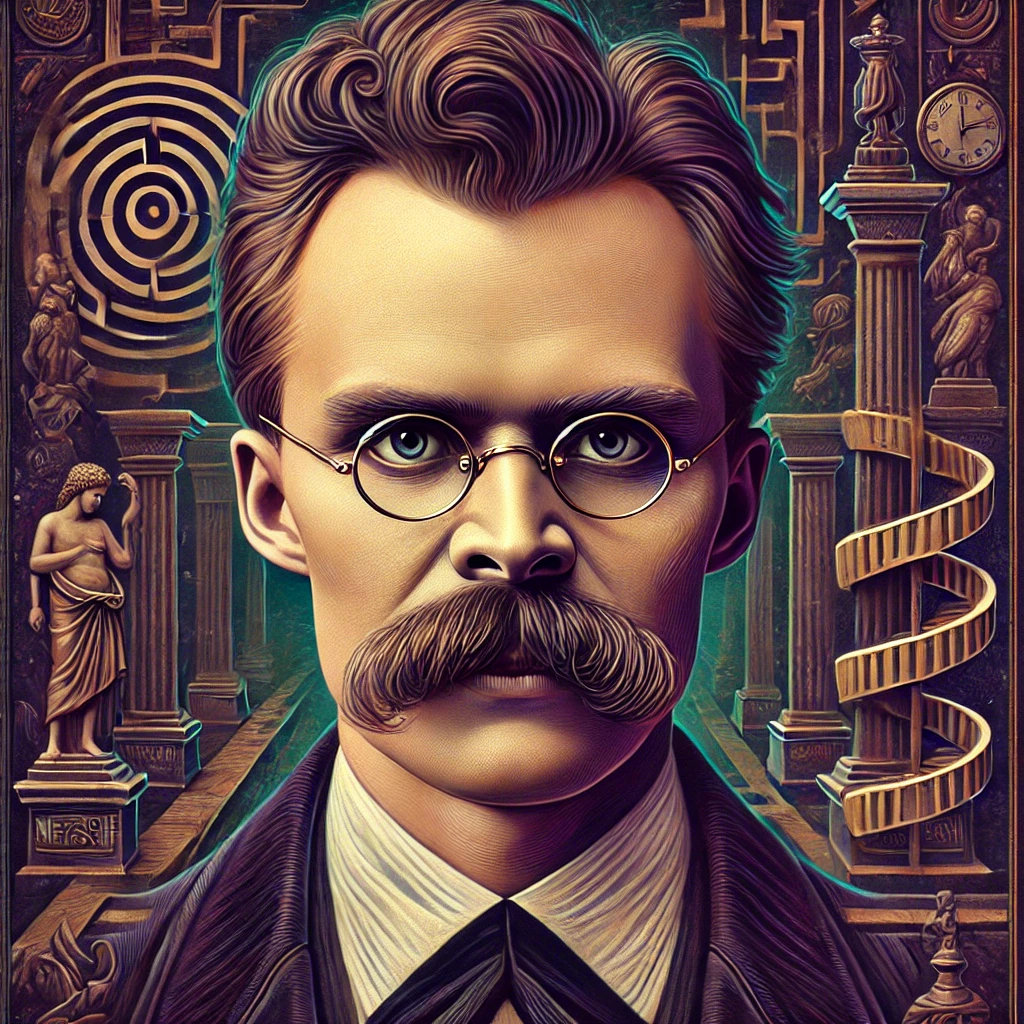Postmodernism

Place of Origin: Europe (primarily France and Germany)
Century of Origin: 20th Century CE
Associated Philosophers:
Overview of Postmodernism
Postmodernism is a philosophical movement that began in the mid-20th century, challenging traditional beliefs about truth, knowledge, and reality. Postmodernists argue that there is no single, absolute truth; instead, they believe that our understanding of the world is shaped by culture, language, and personal experiences. This philosophy emphasizes that what we consider 'true' can vary from person to person and that we should be skeptical of claims to objective knowledge. Postmodernism encourages exploring multiple perspectives and recognizing that everything is influenced by social and historical contexts.
Postmodern metaphysics rejects the idea of a fixed reality that exists independently of our perceptions. Instead, it suggests that reality is constructed through our thoughts and language. Postmodernists believe that since different cultures and individuals interpret the world in various ways, there are many realities rather than one objective truth. This perspective emphasizes that our understanding of existence is fluid and constantly changing based on our interactions and experiences.
Postmodern epistemology focuses on how knowledge is shaped by social, cultural, and political factors. Postmodernists argue that what we know is not just based on facts but is also influenced by our experiences and biases. They emphasize that knowledge is subjective and that different viewpoints can provide valuable insights. This philosophy encourages critical thinking and questioning established truths, recognizing that knowledge can be contested.
Postmodern ethics challenges the idea of universal moral principles that apply to everyone. Instead, it suggests that ethical beliefs are shaped by cultural and social contexts. Postmodernists believe that morality is not fixed; it can change over time and vary between different societies. This philosophy encourages tolerance and understanding of diverse perspectives on what is right and wrong.
In Postmodernism, logic is seen as one of many tools for understanding the world. Postmodernists often question traditional logical reasoning, arguing that strict rules can limit our thinking. They believe that logic should be flexible and open to interpretation, allowing for different ways of understanding complex issues. This approach encourages creativity and exploration beyond conventional logic.
Postmodern aesthetics focus on breaking traditional artistic forms and experimenting with new styles. In this movement, art is seen as a way to challenge established norms and provoke thought. Postmodern art often combines different styles, mediums, and cultural references, reflecting the diversity of perspectives in society. This philosophy celebrates creativity that questions norms and invites new interpretations.
Postmodernism employs a method of deconstruction, which involves breaking down ideas and concepts to reveal their underlying assumptions and contradictions. This approach encourages critical analysis and challenges the validity of traditional beliefs. Postmodernists use this methodology to explore how language, culture, and power influence our understanding of reality.
Postmodernism views humans as products of their social and cultural contexts. It teaches that individual identities are not fixed but are shaped by experiences, language, and interactions with others. This philosophy emphasizes the fluidity of identity, suggesting that people can change and adapt over time based on their circumstances and relationships.
Postmodern political philosophy challenges traditional power structures and ideologies. It argues that no single political system can claim to be the best or most just. Postmodernists advocate for pluralism and diversity in political thought, believing that multiple voices and perspectives should be heard and considered in decision-making. This approach encourages questioning authority and promoting democratic participation, allowing for a broader range of opinions in political discussions.
Postmodernism emerged in the late 20th century as a response to modernism, which emphasized reason, science, and universal truths. Key thinkers like Michel Foucault, Jacques Derrida, and Jean-François Lyotard contributed to this movement by questioning established norms and advocating for multiple perspectives. Postmodernism has influenced various fields, including art, literature, and social theory, and continues to shape contemporary thought about knowledge, identity, and culture.
Key themes in Postmodernism include the rejection of absolute truths, the belief that knowledge is socially constructed, and the emphasis on diverse perspectives. Postmodernists argue that we should be skeptical of grand narratives and embrace the complexity of human experience. This philosophy encourages recognizing the role of culture and context in shaping beliefs, values, and identities.
Michel Foucault is a key figure in Postmodern philosophy, known for his analysis of power and knowledge. He explored how social institutions shape our understanding of reality. Jacques Derrida is famous for his concept of deconstruction, which challenges traditional ideas about meaning and interpretation in language. Jean-François Lyotard introduced the idea of 'the end of grand narratives,' arguing that large, all-encompassing stories about history or progress are no longer convincing in the postmodern world.




